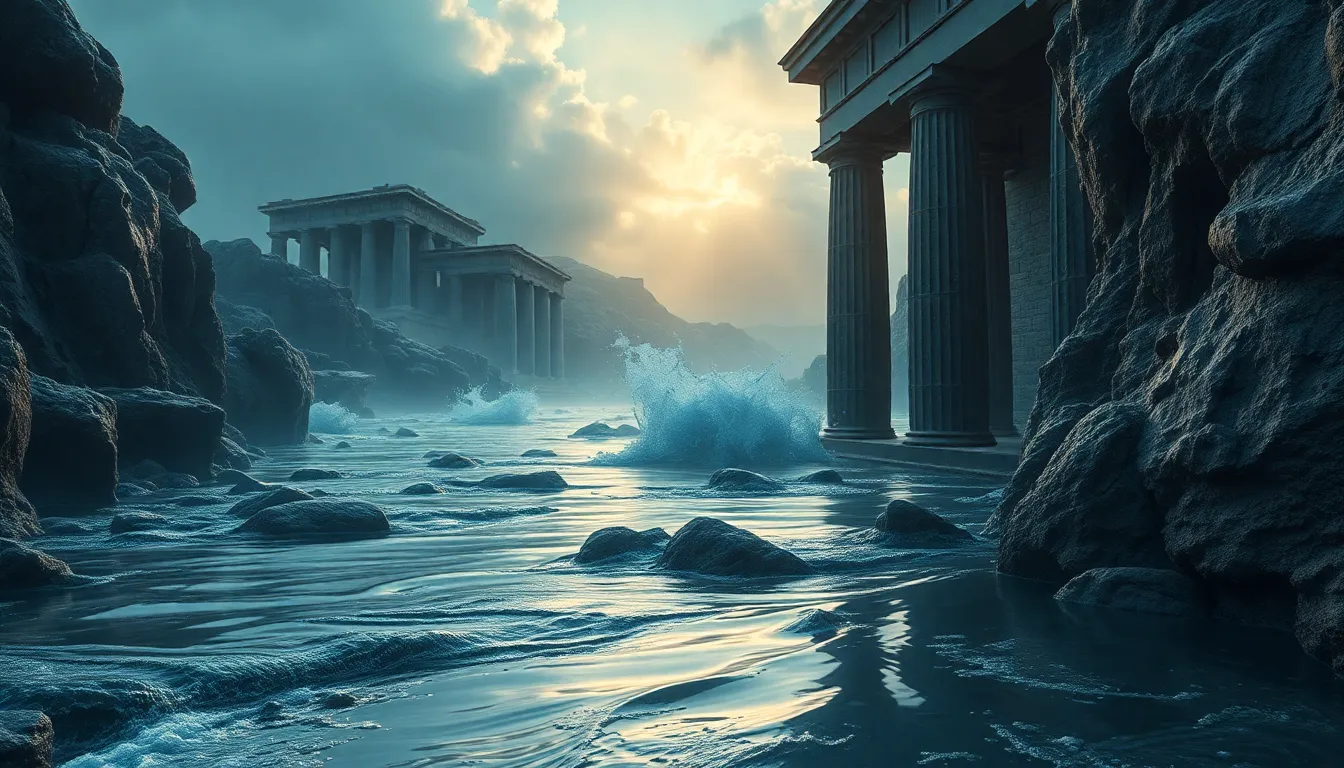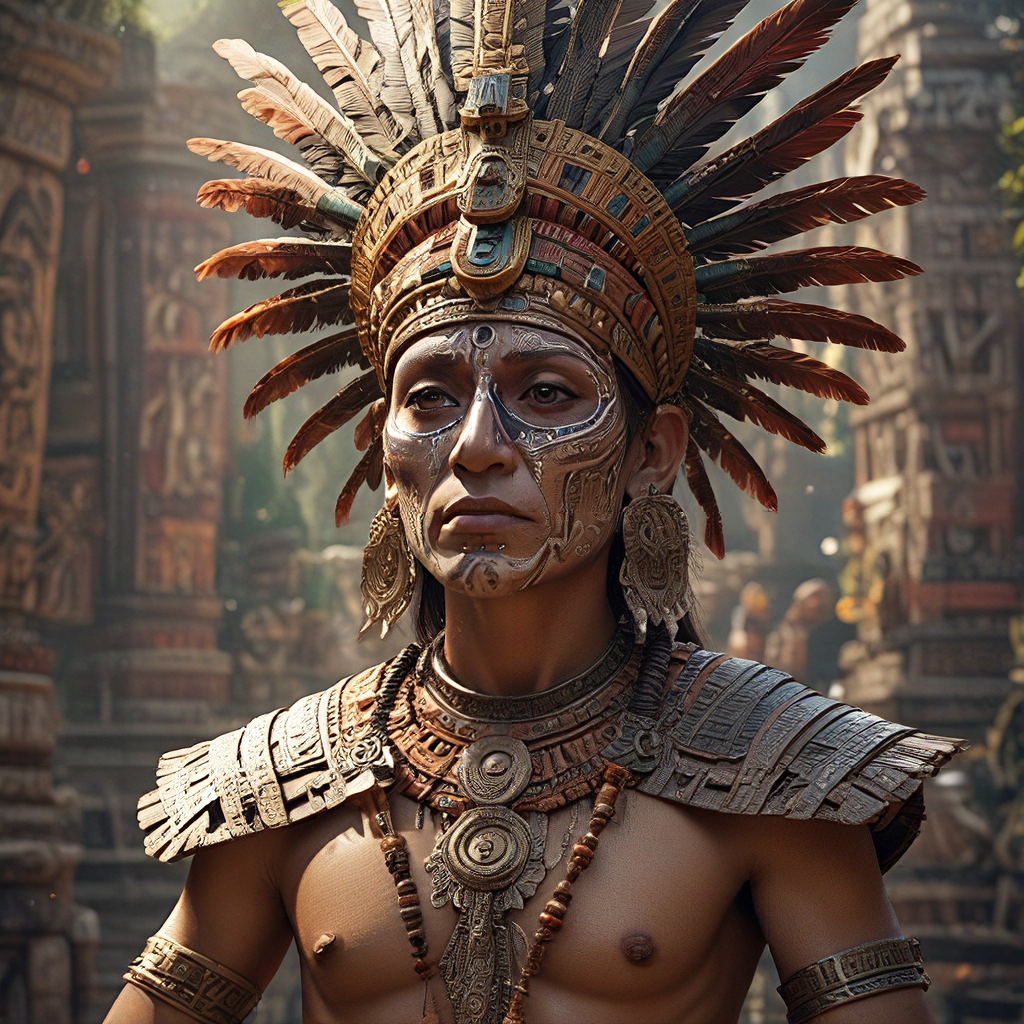The Flood Myths of Greece: Water, Gods, and the Human Experience
I. Introduction
Flood myths are integral components of many ancient cultures, serving as narratives that explain natural disasters, human experiences, and the relationship between mortals and the divine. In Greek mythology, these myths often revolve around themes of destruction and rebirth, highlighting the power of water as both a life-giving and a destructive force.
This article aims to explore the significance of flood myths in ancient Greece, focusing on the role of water and the gods within these narratives. We will delve into historical contexts, key myths, and their implications for understanding human experiences in the face of divine intervention.
II. The Historical and Cultural Context of Greek Flood Myths
The geographical landscape of ancient Greece was characterized by mountainous terrains and numerous bodies of water, including rivers and seas. This environment played a crucial role in shaping flood narratives, as communities faced real threats from natural disasters such as floods and earthquakes.
- Geographical Factors: The proximity to the sea and rivers made ancient Greek societies vulnerable to floods, which often led to significant societal impacts.
- Natural Disasters: Events like the catastrophic flooding of the Nile and heavy rains would have influenced the creation of flood myths as explanations for these phenomena.
Moreover, the interplay between mythology and historical events suggests that these narratives were not merely fanciful tales but reflections of actual fears and experiences faced by ancient Greeks.
III. Key Flood Myths in Greek Mythology
A. The Story of Deucalion and Pyrrha
One of the most prominent flood myths in Greek mythology is that of Deucalion and Pyrrha. According to the myth, Zeus decided to flood the earth to end the wickedness of humanity. Deucalion, the son of Prometheus, and his wife Pyrrha were the only survivors, saved by building a sturdy boat.
- Origins and Variations: Different versions of this myth exist, but the core elements remain consistent: the flood as divine punishment and the survival of a righteous couple.
- Symbolism of Rebirth: After the flood recedes, Deucalion and Pyrrha repopulate the earth by throwing stones over their shoulders, symbolizing renewal and the resilience of life.
B. The Myth of Lycaon
Another significant narrative is that of Lycaon, a king who challenged the gods by serving them the flesh of a human in a feast to test their divinity. In response, Zeus transformed him into a wolf as a punishment, illustrating the moral implications of his actions.
- Moral Implications: This myth emphasizes themes of hubris and the consequences of defying the gods.
- Transformation: Lycaon’s transformation into a wolf serves as a stark reminder of divine retribution and the fragility of human morality.
IV. The Role of Gods in Greek Flood Myths
A. Zeus as the Supreme Deity and the Harbinger of Floods
Zeus, the king of the gods, plays a pivotal role in many flood myths as the deity who wields control over weather and natural phenomena. His motivations often stem from a desire to correct the moral decay of humanity.
- Character Traits: Zeus is often characterized by his impulsive nature and capacity for vengeance, reflecting a complex relationship with humanity.
- Comparative Analysis: Compared to other divine figures in flood myths across cultures, Zeus’s actions are often more directly punitive, highlighting a moralistic approach to divine governance.
B. Poseidon and the Element of Water
Poseidon, the god of the sea, also plays a critical role in Greek flood myths. His dominion over water gives him the power to create floods as a means of asserting his authority.
- Significance: Poseidon embodies the chaotic and unpredictable nature of water, symbolizing both its nurturing and destructive aspects.
- Role in Floods: While Zeus may initiate floods as punishment, Poseidon can control the seas and unleash floods at will, making him a complex figure in these narratives.
V. Water as a Symbol in Greek Mythology
A. The Dual Nature of Water: Creation and Destruction
Water in Greek mythology symbolizes both the life-giving essence and the potential for chaos. This duality is evident in flood myths, where water serves as a vehicle for divine punishment yet also as a means for renewal.
B. Representation of the Divine and the Chaotic
Water often represents the divine in Greek mythology, serving as a boundary between the mortal realm and the divine. It is chaotic, embodying the unpredictable nature of life itself.
C. Myths of Purification and Cleansing
Many flood myths also involve themes of purification, where the deluge acts as a means to cleanse the earth of immorality, allowing for a fresh start.
VI. The Human Experience in Greek Flood Myths
A. Themes of Survival and Resilience
The narratives of Deucalion and Pyrrha, as well as other flood myths, highlight human survival instincts in the face of overwhelming odds. Resilience emerges as a key theme, showcasing humanity’s ability to endure and rebuild.
B. The Role of Human Agency and Moral Choices
Human agency plays a significant role in these myths. Characters often face moral dilemmas that influence their fates, underscoring the importance of choices in determining outcomes.
C. Relationships Between Mortals and Immortals During Disasters
The interactions between gods and mortals during disasters reveal complex dynamics, reflecting both the dependence on divine favor and the consequences of human actions.
VII. Comparative Analysis of Greek Flood Myths with Other Cultures
A. Similarities with Mesopotamian Flood Myths
Greek flood myths share similarities with other ancient narratives, such as the Mesopotamian Epic of Gilgamesh, which features a great flood as a means of divine cleansing.
B. Differences and Unique Elements in Greek Narratives
However, Greek myths often emphasize themes of morality and divine retribution more prominently than their Mesopotamian counterparts, highlighting cultural values unique to ancient Greece.
C. The Universality of Flood Myths Across Civilizations
The prevalence of flood myths across various civilizations underscores a universal human experience, reflecting the fears and moral lessons inherent in the struggle against nature.
VIII. The Legacy of Greek Flood Myths in Literature and Art
A. Influence on Ancient Greek Literature and Playwrights
The themes of Greek flood myths have significantly influenced ancient literature, inspiring playwrights such as Aeschylus and Sophocles to explore moral and existential questions through their works.
B. Artistic Representations in Sculpture and Pottery
Flood myths have been depicted in various forms of art, including pottery and sculpture, where artists illustrate the dramatic moments of divine intervention and human survival.
C. Modern Interpretations and Adaptations in Contemporary Culture
Today, these myths continue to resonate, influencing modern literature, film, and other forms of artistic expression, demonstrating their lasting impact on human culture.
IX. The Relevance of Greek Flood Myths Today
Flood myths remain relevant as they address timeless human concerns about morality, survival, and the relationship with nature. In a contemporary context, these stories can serve as cautionary tales about environmental stewardship and the consequences of human actions on the planet.
As we face climate change and natural disasters, the lessons embedded in these ancient narratives remind us of our vulnerability and the enduring quest for resilience in the face of adversity.



